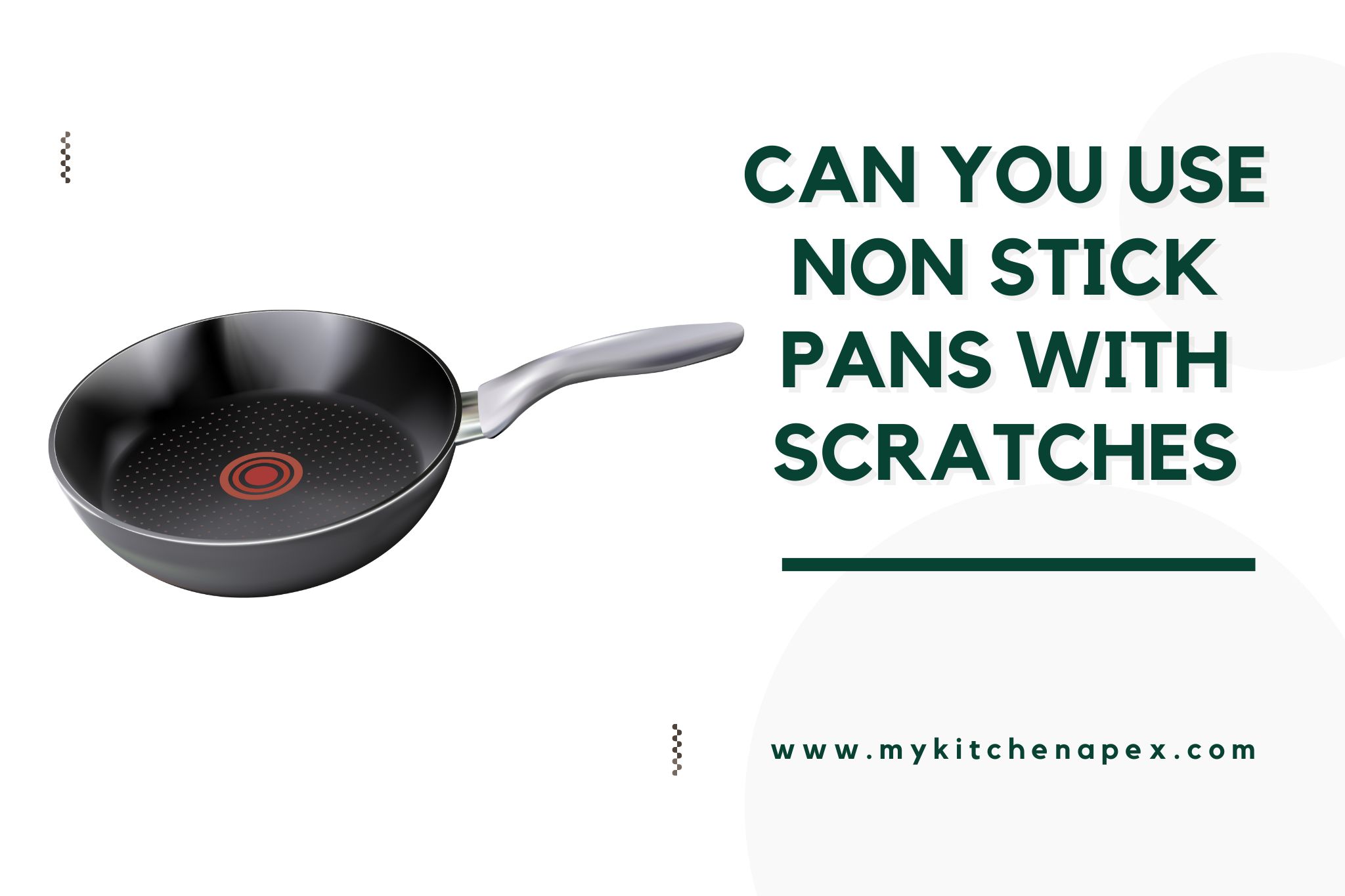Originally Created on: March 5, 2024 @ 8:21 am
Are you wondering if it’s safe to use non-stick pans with scratches? Many of us have that one non-stick pan with a few scratches that we’re hesitant to use. You might be concerned about the safety of cooking with scratched non-stick pans and whether it’s potentially harmful to your health.
It’s a common concern that many home cooks have, and it’s important to get to the bottom of it. While non-stick pans are convenient for cooking and cleaning, scratches can raise doubts about their safety.
Let’s dive into the topic and explore whether it’s safe to continue using non-stick pans with scratches.
Table of Content
Highlights:
- Yes, you can use non-stick pans with scratches
- Take precautions to avoid further damage and coating flaking
- Consider replacing extensively scratched pans for food safety
can you use non stick pans with scratches
Yes, you can still use non-stick pans with scratches, but it is important to take some precautions. Using non-stick cookware with scratches can increase the likelihood of the non-stick coating flaking off and mixing with your food.
To prevent this, avoid using metal utensils and abrasive sponges on the pan, as they can further damage the coating. Instead, opt for silicone, wood, or plastic utensils and gentle cleaning methods to prolong the lifespan of your non-stick pan.
It’s also essential to monitor the condition of the non-stick pan regularly and replace it if the scratches become extensive. Although using a non-stick pan with minor scratches may not pose an immediate health risk, it’s best to prioritize food safety by being mindful of the pan’s condition and taking proper care of it.
Ultimately, by using caution and practicing gentle maintenance, you can continue using non-stick pans with scratches while minimizing potential health concerns and extending their longevity.
You May Also Like: can you use non stick pans without oil
Are scratched non stick pans harmful to health?
Scraped or scratched non-stick pans can potentially be harmful to health as the non-stick coating may start to break down and mix with the food during cooking. This can release toxic chemicals such as perfluorooctanoic acid (PFOA) and polytetrafluoroethylene (PTFE) which are known to have harmful effects on human health when ingested.
Continuous exposure to these chemicals over time may lead to various health issues including liver damage, thyroid problems, and even cancer.
To prevent potential health risks, it is important to avoid using scratched non-stick pans and consider replacing them when the coating starts to deteriorate. It is also recommended to use alternative cookware such as stainless steel or cast iron which do not have any non-stick coating and are considered safer for cooking.
Proper maintenance and care for non-stick pans can also help prolong their lifespan and reduce the risk of scratching or scraping the coating.
How to extend the lifespan of non stick pans?
To extend the lifespan of non-stick pans, it’s essential to avoid using metal utensils, as they can scratch and damage the non-stick coating, leading to decreased effectiveness over time. Instead, opt for silicone, wood, or plastic utensils to preserve the non-stick surface.
Additionally, it’s important to avoid using high heat with non-stick pans, as prolonged exposure to high temperatures can cause the non-stick coating to deteriorate.
Proper cleaning and maintenance are also crucial for prolonging the lifespan of non-stick pans. To prevent the non-stick coating from wearing off, it’s best to hand wash non-stick pans with a sponge and mild dish soap, avoiding harsh abrasive cleaners and scrubbers that can damage the coating.
Lastly, storing non-stick pans properly by avoiding stacking them or placing heavy objects on top of them can help maintain the integrity of the non-stick surface and prevent scratching or warping.
Also Read: can you get frying pans recoated
Can you repair scratched non stick pan
Yes, it is possible to repair a scratched non-stick pan. One method is to use a non-toxic non-stick pan repair spray that can be applied to the damaged areas. This can help to fill in the scratches and restore the non-stick surface.
Another option is to use a non-abrasive sponge or cloth to gently rub the surface of the pan with a mixture of baking soda and water.
This can help to smooth out the scratches and improve the non-stick properties. It’s important to avoid using metal utensils or harsh cleaning products on non-stick pans to prevent further damage.
Also Read: are aluminum cookware safe
Final Thoughts
In conclusion, while it is possible to use non-stick pans with minor scratches, it is important to take precautions to prevent the coating from flaking off and mixing with food. Avoid using metal utensils and abrasive sponges, monitor the condition of the pan regularly, and consider replacing it if the scratches become extensive.
Proper maintenance, including using non-toxic repair sprays or gentle cleaning methods, can help extend the lifespan of non-stick pans and minimize potential health concerns. Ultimately, prioritizing food safety and being mindful of the condition of non-stick pans is key to continued safe usage.

